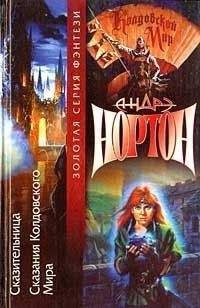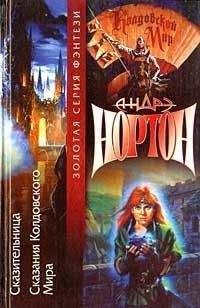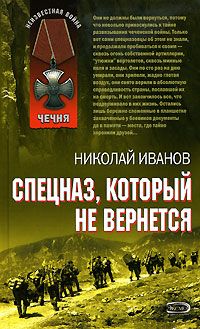Andre Norton - Web of the Witch World
Hundreds of the possessed had died in Gorm. And then there were their agents in Karsten—Fulk—and the others such as Aldis who were still alive and about their business. Not true Kolder, but natives who had come to serve the enemy—not as mindless possessed, but with wit and awareness. Not one of the Old Race could be so bent to Kolder use; that was why the Old Race must go!
Again Simon wondered at whence that emphatic assertion had come. They had known that the Kolder wanted no Old Race captives for their ranks of possessed. They had suspected that this was the reason, but now it was as clear in his mind as if he had had it from Kolder lips.
Heard it? Did the Kolder have their form of communication such as that he now held with Jaelithe and Loyse? That thought shook him. Quickly Simon sent a warning to she who followed and caught her unease in return.
“We are sure of the course now,” she told him.
“Break. Do not send again unless there is great need.”
“Great need . . .” That echoed in his mind, and then Simon became aware that the vibration which had been so steady in the walls about him was muted, humming down scale as if the speed they had maintained was being cut. Had they reached their port?
Simon sat up on the bunk, faced the door. Would they lock him with the same stiff control which had kept him prisoner before? He had no weapons, though some skill in unarmed combat. But he hardly thought that the Kolder would try a scuffle man to man.
He was right, even as the door to the cabin opened, the freeze was on him. He could move—by another’s will—and he did, out into the narrow corridor.
Men there, two of them. But looking into their eyes Simon controlled a shudder only because he could not move save on order. These were possessed, the dead-alive of the Kolder labor horde. One was Sulcar by his fair head, his height; the other of the same yellow-brown skinned race as the officer who had brought Simon on board.
They did not touch him, merely waited, their soulless gaze on him. One turned and started along the passage, the other flattened back against the wall to allow Simon by, and then fell in behind him. Thus, between the two, he climbed the ladder, came out on the surface of the submarine.
Above was an arch of rock. The water lapped sullenly against a waiting quay and Simon saw here a likeness to the hidden port beneath Sippar, evidently a familiar pattern for the enemy. Still moved by remote control he walked ashore on the narrow gangway. There was activity there. Gangs of almost-naked possessed shifted boxes, cleared spaces. They worked steadily, as if each man knew just what was to be done, and the quickest way of doing it.
No voices raised, no talk among the work gang. Simon stalked stiffly behind his guide, the Sulcar bringing up the rear, and no one looked at them. The quay was long and two other subs nosed against it. Being unloaded, Simon noted. Signs of withdrawal from other posts?
Before them were two exits, a tunnel and a flight of stairs to the left. His guide took that way. Five steps and then a waiting cubby. Once they were inside the door closed and they arose in an elevator such as had been in Sippar.
The ride was not long, the door slid open upon a corridor. Sleek gray walls with a metallic luster to their surfaces, outlines of doors, all closed. They passed six, three to a side, before they came to the end of the hall and a door which was open.
Simon had been in the heart center of Sippar and he half expected to see here again the seated Kolder, the capped master at a cross table, all the controls those men had run to hold their defenses tight.
But this was a much smaller room than that. Light, a harsh burst of it, came from bars set in the ceiling in a complicated geometric pattern Simon had no desire to examine closely. The floor had no discernible carpeting, yet it yielded to cushion their steps. There were three chairs, curved back and seat in one piece. And in the center one a true Kolder.
Simon’s guards had not entered with him, but that compulsion which had brought him out of the submarine now marched him forward a step or two to face the Kolder officer. The alien’s smock-like over garment was the same gray as the chair in which he sat, as the walls and the flooring. Only his skin, pallid, bleached to a paper white, broke that general monotone of color. Most of his head was covered by a skullcap, and as far as Simon could see, he had no hair.
“You are here at last.” The mumble of an alien tongue and yet Simon somehow understood the words. Their meaning surprised him a little, one could almost believe that they were not captor and prisoner but two who had some bargain in prospect and needed only to come to a final agreement. Caution kept Simon silent—the Kolder must reveal his game first.
“Did Thurhu send you?” The Kolder continued to study Simon and now the other thought that there was a spark of doubt in that question. “But you are not an outer one!” The doubt flared into hostility. “Who are you?”
“Simon Tregarth.”
The Kolder continued to hold him with a narrowed stare.
“You are not one of these natives.” No question but an assured statement.
“I am not.”
“Therefore you have come from beyond. But you are not an outer one, and certainly not of the true breed. I ask you now—what are you?”
“A man from another world, or perhaps another time,” Simon saw no reason not to tell the truth. Perhaps the fact that he was a puzzle for the Kolder was to his advantage.
“What world? What time?” Those shot at him harshly.
Simon could neither shake his head nor shrug. But he put his own ignorance into words.
“My own world and time. Its relation to this one I do not know. There was a way opened and I came through.”
“And why did you journey so?”
“To escape enemies.” Even as you and yours did, Simon added in his mind.
“There was a war?”
“There had been a war,” Simon corrected. “I was a soldier, but in peace I was not necessary. I had private enemies—”
“A soldier,” the Kolder officer repeated, still appraising him with that unchanging stare. “And now you fight for these witches?”
“Fighting is my trade. I took service with them, yes.”
“Yet these natives are barbarians, and you are a civilized man. Oh, show no surprise at my guess, does not like always recognize like? We, too, are soldiers and our war brought us defeat. Only it has also brought us victory in the end since we are here and we hold that which shall make this world ours! Think you on that, outsider. A whole world to lie thus—” He stretched forth his hand, palm up, and then closed his fingers slowly as if he balled something tangible within his fist. “To serve as you will it! These natives cannot stand against what we have to back us. And—” he paused and then added with slow and telling emphasis, “we can use such a man as you.”
“Is that why I am a prisoner here?” Simon countered.
“Yes. But not to remain a prisoner—unless you will it. Simon Tregarth, March Warder of the south. Ah, we know you all—the mighty of Estcarp.” His expression did not change, but there was a sneer in his voice.
“Where is your witch wife now, March Warder—back with those other she-devils? It did not take her long to learn that you had nothing she cared to possess, did it? Oh, all that passes in Estcarp, Karsten and Alizon is known to us, to the minutest detail it is known. We can possess you if we wish. But we shall give you a choice, Simon Tregarth. You owe nothing to those she-devils of Estcarp, to the wandering-witted barbarians they control with their magic. Has not that witch of yours proved to you that there can be no loyalty with them? So we say—come with us, work in our grand plan. Then Estcarp will lie open for your plucking, your terms—or strike any other bargain you wish. Be March Warder again, do as Estcarp wishes, until the word comes to do otherwise.”
“And if I do not accept?”
“It would be a pity to waste one of your potential. But he who is not with us is against us, and we can always use a strong back, legs, arms to labor here. You have already tasted what we can do—your muscles do not obey you now, and you cannot take a step unless we will it so. This can be used otherwise. Would you care to breathe only by our favor?”
There was a sudden constriction about Simon’s chest. He gasped under that squeezing pressure and panic awoke in him. Less than a second, but the fear did not leave him when he was released. He did not in the least doubt that the Kolder could do as was threatened—keep the air from his lungs, if they chose.
“Why. . . bargain?” he gasped.
“Because the agents we wish cannot be forced. Under such controls you must be constantly checked and watched, you would not so serve our purpose. Accept freely and you will be free—”
“Within your limits,” Simon returned.
“Just so. Within our limits, and that will remain so. Do not believe that you can give assent with your lips and keep to your own purpose thereafter. There will be a change in you, but you will retain your mind, your personality, such of your desires and wishes as fit within the framework of our overall plan. You will not be only flesh to carry out orders as those you term possessed and you will not be dead.”
“And I must choose now?”
The Kolder did not answer at once. Again his expression was blank, but Simon caught a faint tinge of meaning in his voice—threat, uncertainty, maybe one and the same.
“No—not yet.”
He made no signal which Simon could distinguish but the control brought him about, set him walking. No guards this time, but they were not needed. There was no possible way for Simon to break free, and the threat of constriction about his chest was with him still, so that every time he thought of that he had the need to breathe deeply.
Down the corridor, into the elevator again. Up, an open door; the order to move, another hall and another door. Simon went into the room beyond and the control was gone. He turned quickly, but the door was closed and he did not need to try it to know that it would not open.
The harsh, artificial light of the lower room was gone. Two slit windows were open to the day and Simon went to the nearest. He was in a position of some height above a rocky coastline with a sheer descent to water. By side glimpses he got an idea of the building; it must resemble Yle. Not only was the window slit too narrow to climb through, but there was no way down, save that drop straight to the sea-washed rocks.
Simon crossed to the other window. Bare rocks again, not the slightest sign of vegetation—rocks in wind-worn pinnacles, in table mesas, slashed into sharp-walled canyons and drops. It was the most forbidding stretch of natural territory he had ever seen.
Movement. Simon pushed forward as far as he could in the window slit to see what moved in that tormented wilderness of broken rock. A land machine of some sort, not unlike a truck of his own world, though it progressed on caterpillar tracks, which crunched and flattened the surface at a pace, Simon judged, hardly faster than a brisk walk. There were marks on that surface which the machine followed. This was not the first truck which had gone that way, or perhaps not the first trip this one had made in the same direction.
It had a full cargo, and clinging to that lashed-on gear were four men, their ragged scraps of clothing labeling them slave laborers. The machine lurched and jerked so that they held with both hands and feet. That slow crawl inland with a cargo on board. Simon continued to watch until the truck disappeared behind a mesa. It was only then that he turned to examine his new prison.




